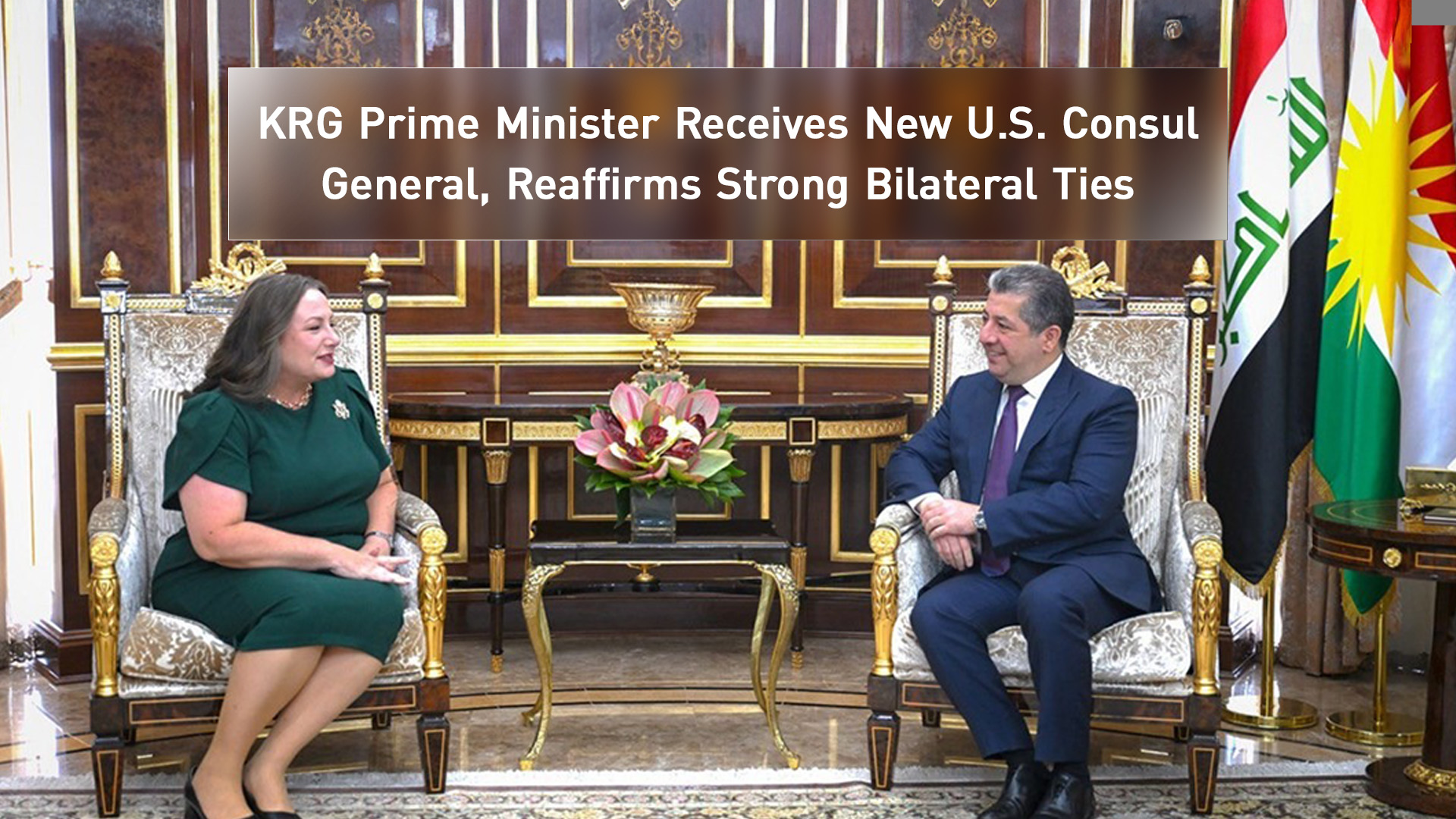KRG Prime Minister Receives New U.S. Consul General, Reaffirms Strong Bilateral Ties
U.S. Consul General Wendy Green praised the Kurdistan Regional Government’s reform projects, particularly the Runaki 24-hour electricity program and the My Account digital initiative.

ERBIL (Kurdistan24) — Masrour Barzani, Prime Minister of the Kurdistan Regional Government (KRG), on Sunday welcomed Wendy Green, the newly appointed U.S. Consul General, during a meeting in Erbil.
Prime Minister Barzani congratulated Consul General Green on her appointment and expressed full support for the mission of the U.S. Consulate in the Kurdistan Region. He also expressed gratitude for the United States’ continued cooperation and support across all sectors in the region.
Consul General Green expressed her pleasure at being stationed in the Kurdistan Region and emphasized the importance of friendly relations between the two parties. She reiterated her country’s commitment to further strengthening bilateral ties and noted the upcoming visits of U.S. commercial delegations to the region.
The U.S. Consul General also praised the KRG’s efforts in various fields, highlighting the significance of the Runaki and My Account projects in particular.
The meeting additionally addressed the importance of resolving ongoing challenges between the Kurdistan Region and the federal government of Iraq, ensuring the rights and proper financial entitlements of the people of Kurdistan, and resuming the Kurdistan oil export.
KRG–U.S. Relations
The Kurdistan Region of Iraq has maintained a close and strategic relationship with the United States for decades, rooted in security cooperation, economic partnerships, and humanitarian support. The U.S. has been a key ally in counterterrorism operations against ISIS, providing military aid, training, and intelligence support to the Peshmerga forces.
Beyond security, the U.S. has played a significant role in economic development, investment promotion, and governance initiatives in the region.
The appointment of a new Consul General underscores Washington’s ongoing commitment to deepening political, commercial, and cultural ties with the Kurdistan Region. Recent visits by U.S. delegations and diplomatic engagement reflect mutual interest in strengthening democratic institutions, supporting regional stability, and advancing bilateral trade and investment opportunities.
Runaki Project
The Runaki project is one of the Kurdistan Regional Government’s flagship initiatives aimed at enhancing energy infrastructure and providing reliable electricity to citizens. Launched as part of broader modernization efforts, the project seeks to address chronic electricity shortages, improve grid stability, and integrate renewable energy solutions where possible.
Beyond technical improvements, Runaki also prioritizes equitable service delivery, ensuring that urban and rural communities alike benefit from consistent power access.
"Nearly 4 million citizens across the Kurdistan Region — and over 115,000 businesses — now enjoy 24-hour electricity through the program," Prime Minister Barzani wrote on his X account on Thursday.
In the same X post, Barzani announced that Halabja has become the first province to switch entirely to 24-hour electricity, calling the achievement a milestone in the government’s service delivery.
The project represents a broader KRG commitment to improving public services, fostering economic growth, and supporting industrial and commercial development across the region.
My Account Project
The My Account project is a digital governance initiative designed to streamline public services and improve transparency in the Kurdistan Region. Through this platform, citizens can access personal records, financial entitlements, and government services online, reducing bureaucratic delays and enhancing accountability.
The system empowers residents to monitor and manage their interactions with government agencies while providing authorities with more efficient tools for record-keeping and service delivery.
My Account reflects the KRG’s focus on digitization, citizen-centric governance, and innovation in public administration, contributing to overall social and economic development in the region.
